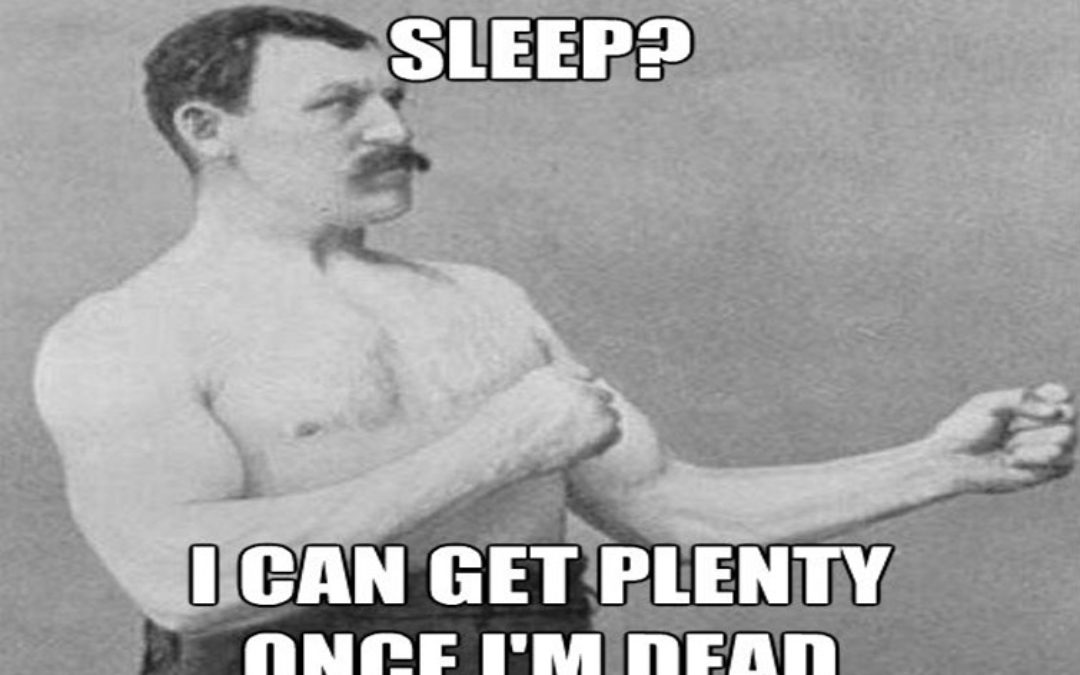Recovery principles – sleep
Moving from a focus on warm ups last week we now shift our energy to conserving it and recovering. Inspired by a Huffington Post article and by the recent Row2k article on sleep we thought we’d peel back the covers and give you a run down of why this element of athletic life could be one of the most important.
There are many sleep based studies that have long proven the wide ranging benefits of quality sleep and rest periods, not just in the athlete population but for workers, students and even developing children. The effects are significant across psychological and physiological parameters – improvement in cognitive function, enhanced muscle repair, improved hormonal regulation and reduced sick days are all linked to getting the most relaxing part of training right.
Mitacs, an organization whose aim is to build research partnerships in Canada recently set its sights on the Canadian Olympic team and specifically rowers. It’s lead study author, physiologist Amy Bender came up with a number of interesting findings that highlight the importance of sleep hygiene and ask the question – if we are training at 100% but our sleep is poor are we really giving ourselves the opportunity to be at our best?
From Amy’s notes; “What we found was that not only were the athletes not getting enough sleep at night, but they also weren’t napping, which is very important.” In addition to this; “90 per cent of the team members were using technology before bed, which has been proven to affect the quality of sleep.”
At the begging of the study it was seen that only 25% of the athletes were satisfied with their sleep patterns and quality, a fact that can be very frustrating and create stress as well as reduce capacity and recovery.
It was clear that interventions were needed and although these would have been individualised at this level we have outlined some key tips from this study and a further sport specific sleep analysis that can be used by anyone:
Top Sleep Quality Tips
-Tech cut off: Set a curfew for electronic device use before bed, for example no phone use, no computer or TV 1 hour before your bed time. This can reduce rapid eye movement and over stimulation, not what you need before hitting the hay.
-Keep a sleep log: 9 hours is ideal but 7 is already realistically more than many people are getting with busy work and training schedules so try for this first and stick to it, but don’t approach trying to sleep with stress or anxiety, as you will see below just being in bed is already helping.
-Get into bed earlier: Even if you’re not sleeping right away, get into the habit of just getting ready for bed earlier. This way, when you’re ready for snooze time, you’ll already be settled in bed. To kick things off, start with 30 minutes and work towards an hour.
-Pick up a book or another activity: Now that you’re in bed earlier, find ways to make use of your time without being on the phone. Read a book, meditate or just lay down and listen to some music.
-Squeeze in a nap (if you can): If your place of work offers napping spaces, try to get a 20-minute nap during the day. This can be impossible so even taking a 30 min break for a bit of mindful and detuned thought can be more achievable and helpful at the least. GB sport has put a huge focus on daily rest, even to the extent where gym sessions are capped at 60mins to increase rest periods for the day, such is the value seen by sports scientists of adequate rest.
-Make sleep a priority: At the end of the day, the only way to get a better sleep is by making it a priority for yourself. You may not be training like Olympic athletes, but sleep is important for every type of body.
Some further suggestions from the Foundation for Global Sports Development:
-Keep a consistent sleep schedule. Wake up at the same time on the weekends as you do weekdays.
-Eat a large meal at night, about three hours before bedtime * note we are not all in agreement with this based on energy cycling but you also need adequate food intake for recovery and going to sleep hungry or energy deprived if weight loss is not your goal is not ideal.
-Avoid caffeine and alcohol, as both can lead to less restful sleep.
-Develop healthy ways to manage stress.
-Exercise should take place earlier in the day, no later than four hours before bedtime.
-Nap if feeling drowsy, but for no longer than 30 minutes.
So what were the results of the study interventions?
Post intervention, 77 per cent of participating athletes were satisfied with the quality of their sleep after making simple changes to their routine like the ones listed above. That is a 300% increase.
“They reported less muscle soreness. They reported feeling better and being able to train harder for longer, showing that these interventions can be useful,” Bender says.
If your training program is planned with military precision and your put your all into that then miss out on adequate sleep recovery you are disadvantaging yourself from an athletic, mental and general lifestyle point of view. Hitting more podiums might be as easy catching a few more quality Z’s.

